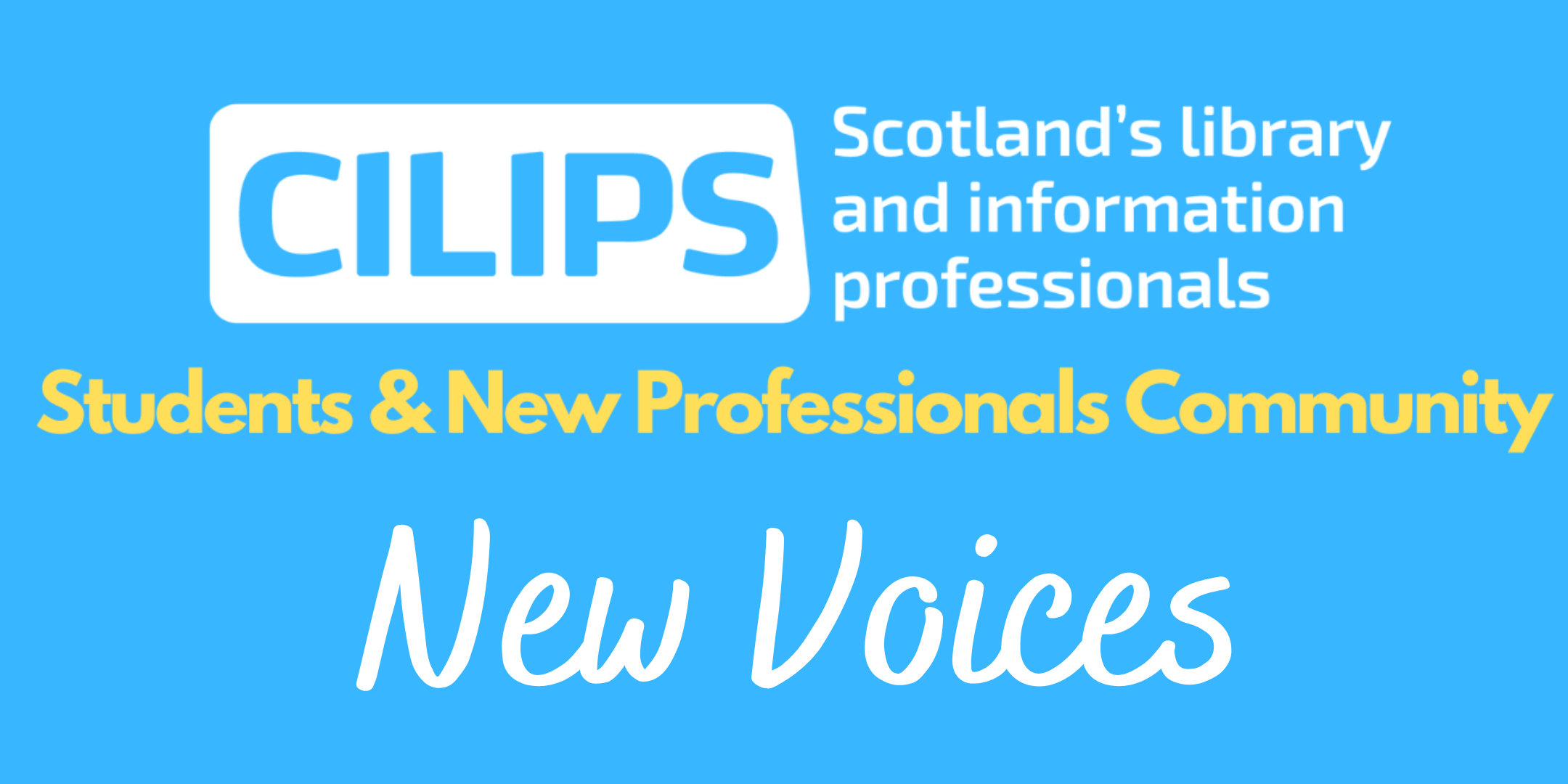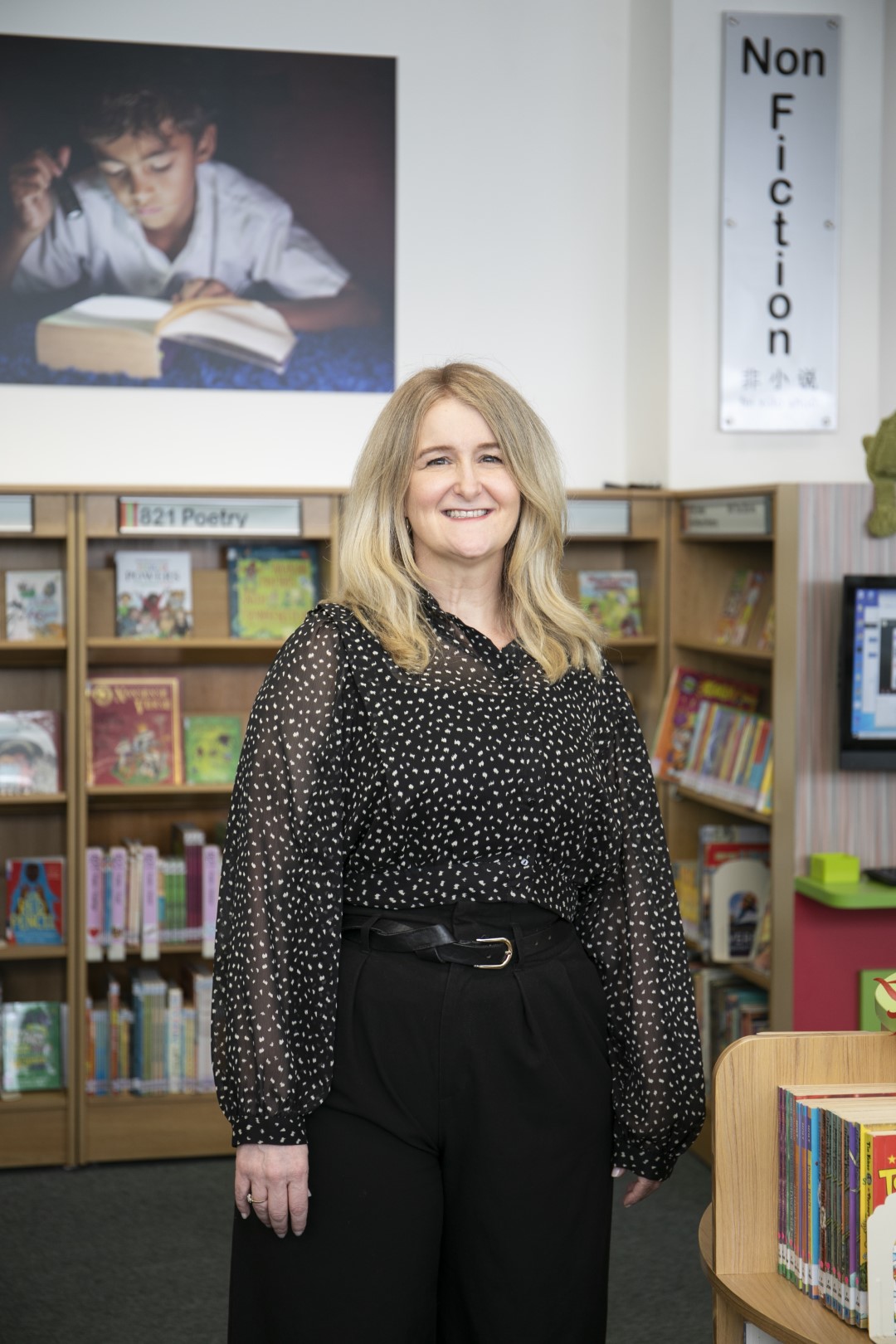New Voices RGU Student Series 2023- Janine Murphy
Category: Blog, New Voices, New Voices, RGU Student Series

In this 2023 Student Series for the New Voices blog, the CILIPS Students & New Professionals Community will be sharing the views of Robert Gordon University students from the MSc in Information and Library Studies. With special thanks to Dr Konstantina Martzoukou, Teaching Excellence Fellow and Associate Professor, for organising these fantastic contributions. This series will be shared by CILIPS Graduate Trainee Leah Higgins.
Today we are hearing from Janine Murphy. Originally from Wales, Janine taught as Head of English and libraries in the UK and Malaysia before moving into her current role as Head of Junior Library at Tanglin Trust School, Singapore. She is dedicated to making the children’s library a place for imagination and creativity, inspiring a life-long love of reading.
Developing tools for thought: the role of information professionals in secondary education
‘Information literacy is the ability to think critically and make balanced judgements about any information we find and use.’ (CILIP 2018).
A key role for information professionals is to encourage children to think critically about ways in which they find information online. Understanding how search tools may select, prioritise, or hide information is a crucial step on their journeys to becoming information literate. They are then utilising tools for thought that can help them understand more about the process of information searching. (Rheingold 2000).
Young people live in a unique information age that may seem both exciting and overwhelming. As information professionals, we should be aware of information literacy skills and behaviours that children adopt online. To do this, we require a current knowledge of teenagers’ information seeking behaviours and practices. Much research has been done around teens and tech. The Pew Research Center conducts regular surveys and provides statistical data in this field. In a 2019 survey, they stated that ‘Nearly all U.S. teens (95%) say they have access to a smartphone – and 45% say they are ‘almost constantly’ on the internet.’ (Anderson and Jiang 2019). Searching for information in this way can become unstructured. Switching between websites generates a state of confusion and children are unsure of where to begin searching. This is where an information professional could intervene and really make a difference.
Teacher librarians are becoming information coaches, motivating teenagers to approach their own complex information needs, and formulate solutions to these problems.
To develop critical thinking skills around information seeking, students need to develop confidence in their ability to search independently. A google search is a familiar place to start and information professionals can facilitate a difficult first step: working out keywords for search strategies. This pre-strategy thought is an important stage in tools for thought. From there, children may move on to more advanced thought skills: to consider how google has selected and prioritised the information it presents. And then, it is a hop, skip and a jump (more like a leap but the children do not need to know this!) into Google Scholar. Google Scholar pulls academic articles from the web and online databases quicker than anyone can say Proquest! Creating alerts on database searches develops a sense of students’ personal empowerment and agency, providing up-to-minute information for ever-changing subject content areas such as science or politics. Critical thinking skills develop when children learn how to evaluate the value and limitations of the information they find. Understanding how internet search engines sort information for their use is a powerful tool for thought.
‘A context in which the user can have new kinds of thought, thoughts that were formerly impossible for them.’ Andy Matuschak & Michael Nielsen – How can we develop transformative tools for thought? (2019)
Beyond Google
The next generation of information searching tools is currently under development. Information professionals should be sharing these with students, encouraging them to think about how tools will work for them. Artificial Intelligence research assistance is intuitive and primed to complete thoughtful searching. Developers are posting their work in progress on social media for everyone to try out and comment on. One such research assistant is Elicit developed by Ought. The transparent way in which this and other apps are evolving gives students the opportunity to become involved in the thought processes behind them.
As information professionals, we can empower students to change the patterns of how to solve online information challenges. With these tools for thought our students will be well prepared and confident to navigate the many advancements in digital technology that will inevitably come along in their lifetime.
Summary
- Consider how teenagers search for information online and develop these skills.
- Develop students’ critical thinking skills and their understanding of tools for thought.
- Improve students’ awareness of and interaction with artificial intelligence technology.
Bibliography
ANDERSON, M., and JIANG. J., 2022. How Teens Do Research in the Digital World. [online] Available from: https://www.pewresearch.org/internet/2018/05/31/teens-social-media-technology2018/#vast-majority-of-teens-have-access-to-a-home-computer-or-smartphone [Accessed on 20 November 2022].
CHARTERED INSTITUTE OF LIBRARY AND INFORMATION PROFESSIONALS (CILIP), 2018. CILIP Definition of Information Literacy 2018. [online]. London: CILIP Information Literacy Group. Available from: https://infolit.org.uk/ILdefinitionCILIP2018.pdf [Accessed 18 October 2022].
MATUSCHAK, M., and Nielson, M., 2010. How can we develop transformative tools for thought? [online] Available at: https://numinous.productions/ttft/ [Accessed 20 November 2022] ELICIT, 2022. USA:
Ought [online]. Available at: https://elicit.org [Accessed on 22 October 2022]
Rheingold, H., 2000. Tools for Thought. The History and Future of Mind-Expanding Technology. USA: MIT Press.


